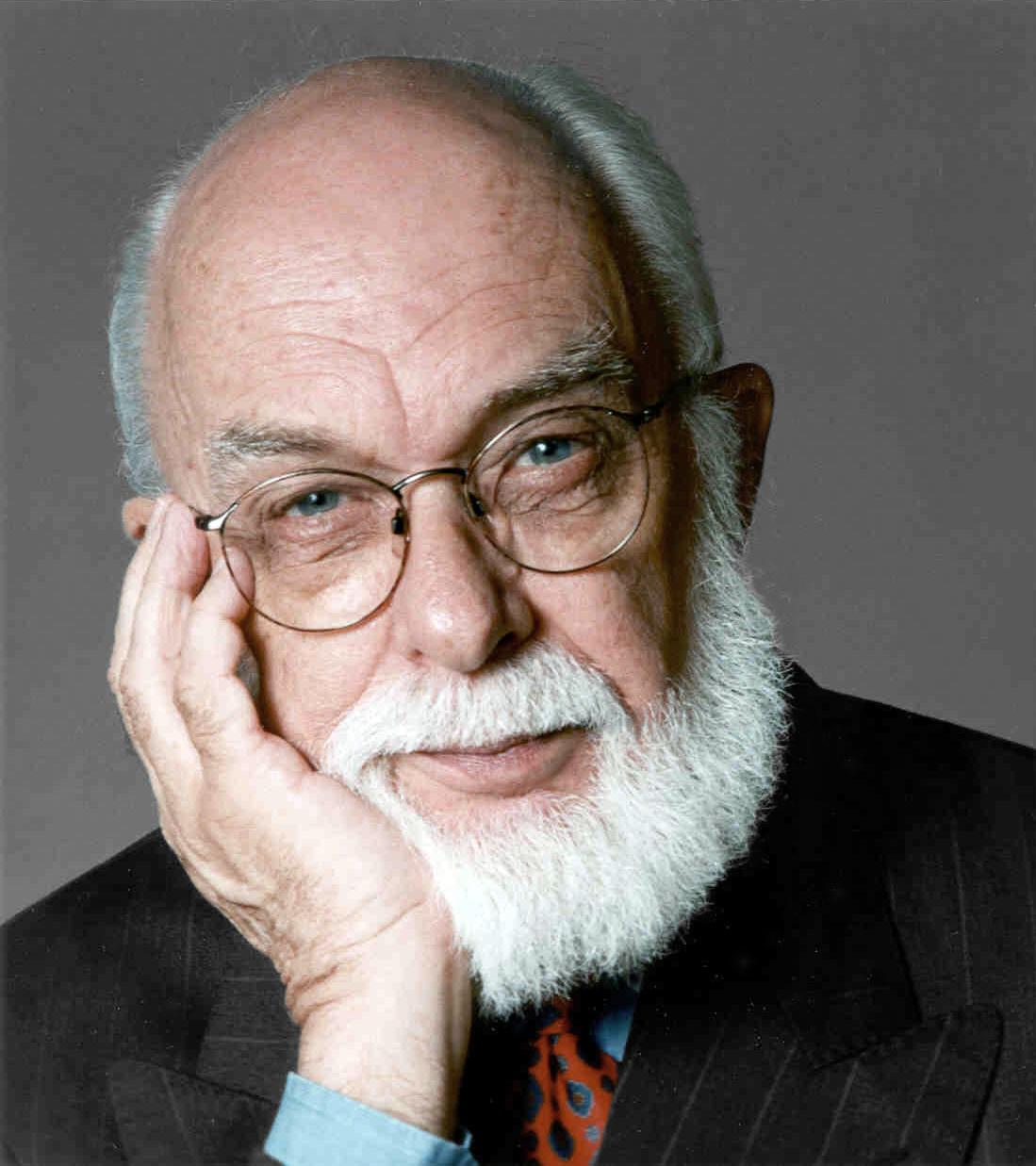James Randi
James ("The Amazing") Randi (born August 7,1928) is a stage magician, skeptic, and opponent of pseudoscience. He is perhaps most famous for the One Million Dollar Paranormal Challenge, in which the James Randi Educational Foundation will award a prize of one million dollars to anyone who is able to show evidence of any paranormal, supernatural, or occult power or event under test conditions agreed to by both parties.

James Randi
Photo credit: The James Randi Educational Foundation
Randi has worked as a professional stage magician and trickster since the 1950s (he appeared as "The Amazing Randi" on a short-lived TV show entitled Wonderama in 1955), but he entered the national spotlight in the 1960s when he challenged the public claims of Uri Geller. Randi accused Geller of being nothing more than a shyster who uses standard "magic" tricks to accomplish his paranormal feats, and he backed up his claims in the book The Magic of Uri Geller. Geller responded to Randi's claims by filing a number of lawsuits against Randi, and this rivalry has continued for more than three decades.
Randi has gone on to write several books attacking popular beliefs and claims regarding the paranormal. He has also been instrumental in exposing frauds and charlatans who exploit this field for their own personal gain. Randi's expose of faith healer Peter Popoff resulted in a sharp decline in Popoff's influence and popularity.
In the conditions and rules governing his $1M challenge, Randi has plainly stated that both parties (both himself and the party accepting the challenge) must agree in advance as to what conditions of the test constitute a "success" and what constiutes a "failure." This stipulation is seen by skeptics as the reason why many self-proclaimed practitioners of paranormal abilities refuse to take part in the Randi Challenge. Nevertheless, Randi's detractors claim that the offer is insincere, and that Randi will ensure he never has to pay out. He was quoted in the October 1981 issue of Fate magazine as allegedly saying "I always have an out," though this magazine article was written as a result of political infighting among the members of CSICOP, in which Randi was founding fellow and prominent member until he resigned because of lawsuits brought upon by Uri Geller in order to protect the organization.
Parapsychologists generally try to downplay the Randi challenge because of these attacks on Randi's character, and also because of his harsh, uncompromising style of writing and presentation, which has won him enemies among those who claim to be paranormal experts. Randi's supporters note that there are other skeptical organizations that have their own similar standing offers to prove the existence of paranormal abilities, and anyone claiming to be an expert in their field of the paranormal can easily apply for any of these other prizes, avoiding Randi altogether.
In 1996, Randi established the James Randi Educational Foundation (JREF). The JREF organization supports research into paranormal claims and attempts to test them in controlled experimental conditions, offering the $1,000,000 prize to anyone who can demonstrate a supernatural ability under agreed upon scientific testing criteria. As of the current writing, no one has passed the preliminary tests. Randi hosts an internet audio show every Thursday, and updates the JREF's website with written commentary on Fridays.
Bibliography
- Flim-Flam! (1982)
- The Magic of Uri Geller (later renamed The Truth About Uri Geller) (1982)
- The Faith Healers (1989)
- The Mask of Nostradamus (1990)
- Conjuring (1992)
- An Encyclopedia of Claims, Frauds, and Hoaxes of the Occult and Supernatural (1995)
- How to Think About Weird Things: Critical Thinking for a New Age (1995)
